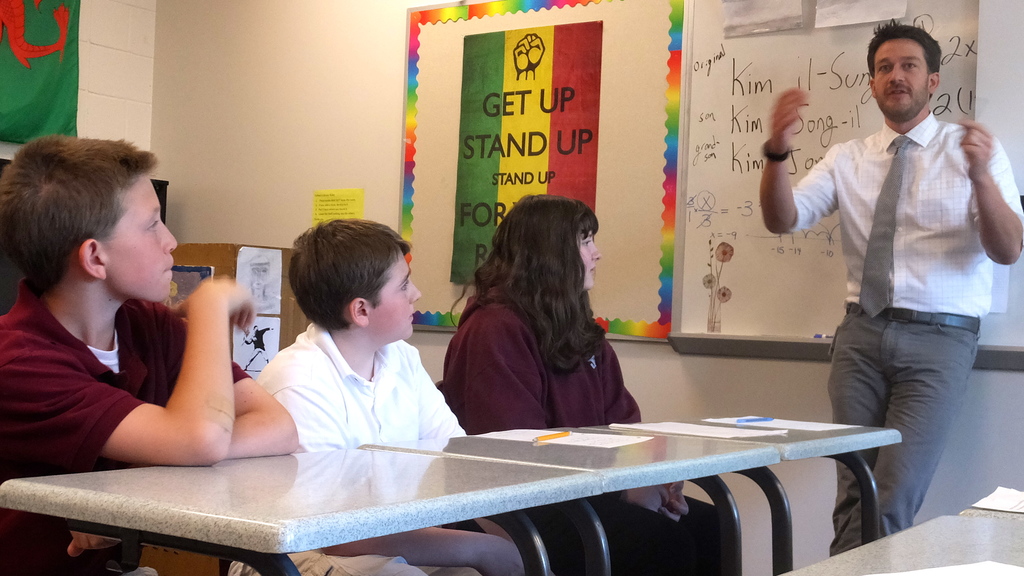Seventh-grader Ellie Erickson had done her homework and was ready for the question.
Ellie and the South Junior High world studies class were debating whether the United States should destroy North Korea’s nuclear facilities. The assignment was part of a year-end, Common Core-aligned project. Teacher Tim Fahlen designed the lesson to combine all of the skills and knowledge the students acquired this year.

The class broke into teams of four and researched the options, costs and logistics.
Ellie had grown up reading and watching the news with her mother and grandmother and felt confident debating against the U.S. intervening.
“We’re in debt, we can’t really pay for another world war,” Ellie said. “Look at Detroit: That city filed for bankruptcy. Remember where the GDP goes? We need to focus on rebuilding our country.”
Another team came up with a different argument.
“According to what we’ve found, if the U.S. destroys the weapons factories, then they wouldn’t be able sell them to terrorist like Al Qaeda,” seventh grader Henry Brollier said. “If they’re sold, that could bring up all kinds of problems. But there is not much threat after the factory is destroyed.”
In order for the students to ace the assignment, Fahlen expected them to dig into multiple sources, connect the facts and back up their arguments with research.
“Honestly, it’s not as much about North Korea as it is about their ability to work in a group, speak about their ideas in a clear way and connect different pieces of information from different sources,” Fahlen said.
In the end, the class voted Ellie’s team the winners, despite tough competition.
“They were much better this year than ever before,” Fahlen said,
Here’s the Common Core standards the students are worked to meet: Conduct a short research project to answer questions. Gather relevant information from multiple print and digital sources. Draw evidence from informational text to support your analysis.
